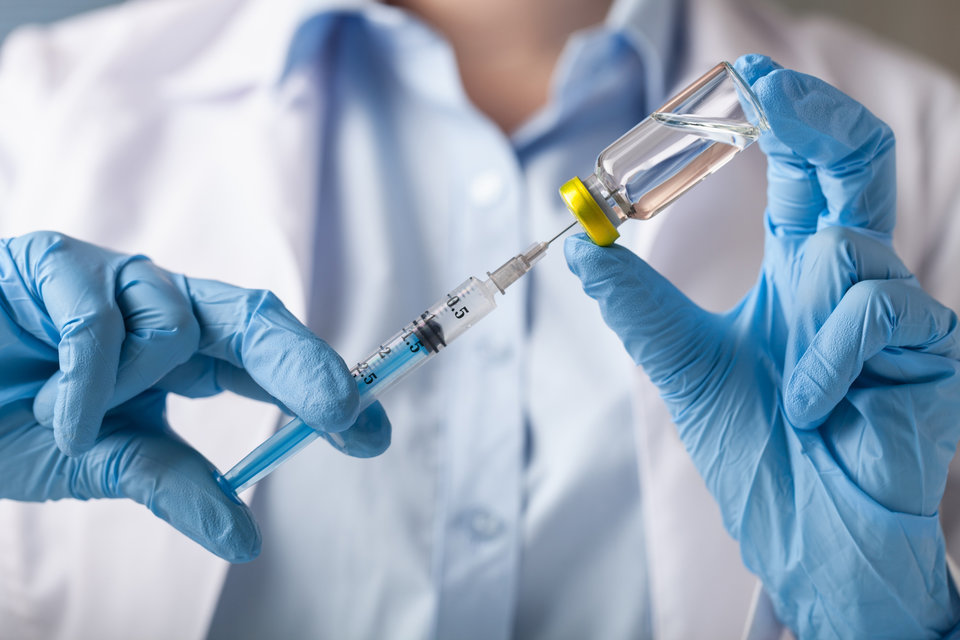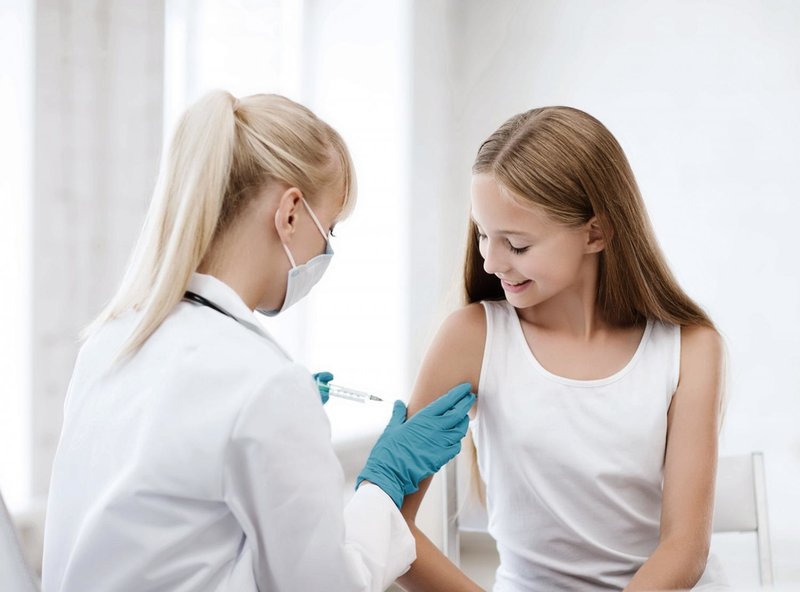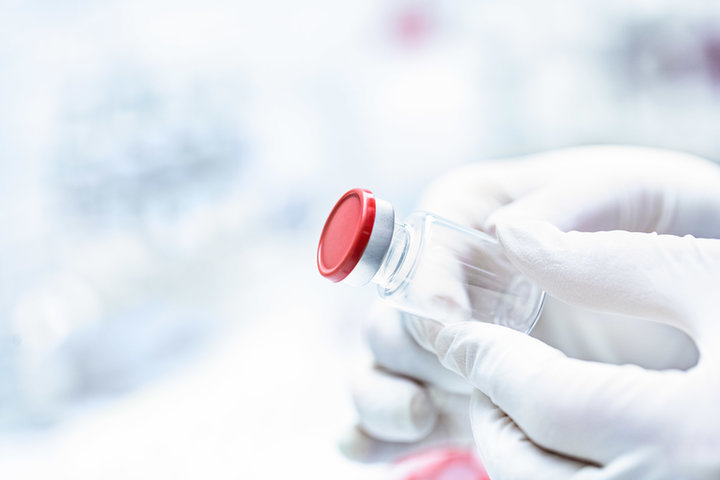COMPANY INSIGHT
Sponsored by Datwyler
Smart Goals and Continuous Improvement for a Resilient Sustainability Strategy
Making every component count toward an environmentally responsible supply chain
By Dirk Borghs, CEO of Datwyler Healthcare Solutions

Forecasts on the effects of climate change have prompted all industries, including the pharmaceutical sector, to implement more environmentally responsible practices. In doing so, in 2015, some of the biggest names in the pharmaceutical industry, including Patheon, Biogen, Johnson & Johnson, Genentech, and Novartis joined the American Business Act on Climate Pledge.
Now, even as the industry remains focused on the development and production of viable COVID-19 vaccines and treatments, drug manufacturers can continue to support sustainability initiatives by working with suppliers aligned with their commitments to build a more eco-conscious supply chain. Many already are by utilizing principles and implementation guidance. Others are taking even larger steps. For example, Pfizer announced in March the completion of a $1.25 billion 10-year sustainability bond that will mature April 1, 2030—a first-ever sustainability bond for Pfizer—or any biopharmaceutical company. Proceeds from the bond will help support patient access to Pfizer’s medicines as well as support the company’s robust sustainability efforts aimed at significant reductions in greenhouse gas emissions, waste and water use. However, particularly for parenteral drug packaging, there are some key considerations to make when specifying solutions like plungers for pre-filled syringes and stoppers and caps for vials. How these system-critical elastomer components are manufactured makes up part of the sustainability story for every drug manufacturer.

Smart Resource Management for a Resilient Sustainability Strategy
In July, Datwyler announced its long-term target for carbon neutrality after successfully reducing consumption of electricity, fuels, and water per revenue unit for three consecutive years. Last year marked several key strides in resource management. The company reduced consumption per revenue unit for: electricity (-3.2 percent), fuels (-0.5 percent), water (-15.0 percent), and waste volume (-5.5 percent).
Even though the company contends with the industry-wide challenges posed by COVID-19, Datwyler’s interdisciplinary project group continues advancing its sustainability and climate strategy with the long-term goal of carbon neutrality. In Switzerland, Datwyler produces CO2 neutrally by utilising a wood-fired heating plant for process energy and heating power as well as hydropower for electricity.
These resource management changes help the company do its part in meeting the United Nations (UN) Sustainable Development Goals. The efforts also merited Datwyler a top 25 percent ranking in the EcoVadis CSR audit. Datwyler continuously improves the ways it can help pharmaceutical customers build a more resilient, environmentally conscious supply chain (Figure 2).
1.Compliance with Credible Sustainability Standards and Goal Setting Organizations
Demonstrating alignment with initiatives such as the United Nations (UN) Global Compact, a voluntary initiative based on CEO commitments to implement universal sustainability principles and take steps to support UN goals, or the Global Reporting Initiative (GRI), an independent international organization that has pioneered sustainability for more than 20 years, reaffirms Datwyler’s commitment and drives continuous improvement. As early as 2008, Datwyler has published an annual sustainability report in accordance with the GRI guidelines. And since 2009 the Swiss based healthcare supplier has been a member of the UN Global Compact.
These standards and organizations make for a robust guiding force for developing or reconfiguring sustainability goals.
2. Incremental Goal Setting to Reduce Utility Usage and Waste
Over three consecutive years, Datwyler managed reductions in resource consumption across key areas. Datwyler set challenging but achievable targets based on average annual reduction in the relative consumption of resources per revenue unit up to 2020: fuel –6 percent, electricity –3 percent, water –3 percent, volume of waste –3 percent.
3. Evaluation of Chemical Compliance Management
Manufacturing 30 billion components a year requires 56’000 tonnes of raw materials like polymers, fillers, aluminium, curing agents, and antioxidants. As such, Datwyler must meet a variety of chemical law requirements at its production locations around the world as well as additional industry and customer-specific rules. However, proactive advancements in chemical compliance management help to keep companies ahead of the curve on best practices for raw materials sourcing, usage, handling, and disposal. Ensuring transparency on all substances makes seamless, open communication between customers and suppliers easier, especially if previously unproblematic substances must be re-evaluated (even if they continue to meet regulatory standards).
4. Investment in Green Electricity to Support Carbon Neutrality
In addition to reducing overall energy and utility consumption, employing carbon-neutral electricity makes hitting major sustainability goals a stronger possibility for larger companies with global operations. So in addition to the steps taken toward carbon neutrality at Datwyler’s Switzerland and Italy plants, the company works on a plan to purchase carbon-neutral electricity at all its plants worldwide. (Figure 4)
There is No Time like the Present to Plan a Better Future
When it comes to driving sustainability in the pharmaceutical industry, the road ahead will be long.
Datwyler is prepared to make its contribution as a socially and environmentally responsible company. There is only one planet and we have to take good care of it if we want to secure it for our children and future generations. Datwyler proudly looks back on more than 100 years of value creation for the benefit of all its stakeholders. Sustainability is deeply rooted in our heritage and values and has always been part of the DNA of the company. Eleven years of membership in the UN Global Compact and twelve GRI sustainability reports prove our commitment. Aware that resources are limited, we want to use them responsibly and contribute to achieving the UN Sustainable Development Goals. And above all, we want to continue to create value for our customers, grow profitably and lay the foundation for our long-term success.

DATWYLER | HEALTHCARE
Datwyler is focusing on high-quality, system-critical elastomer components and has leading positions in attractive global markets such as healthcare, mobility, oil & gas, general industry, and food & beverage. With its recognized core competencies and technological leadership, the company delivers added value to customers in the markets served. With more than 20 operating companies, sales in over 100 countries and more than 6,500 employees, Datwyler generates annual sales of more than CHF 1’000 million. Within the healthcare solutions business area, Datwyler develops, designs, and manufactures solutions for injectable packaging and drug delivery systems to facilitate customers to create a safer medical environment of tomorrow. Looking back onto more than 100 years of history, Datwyler is a reliable partner, now and in the future! www.datwyler.com
Contact information
Datwyler Pharma Packaging Belgium NV
Nijverheidsstraat 5
Industrieterrein Kolmen 1519
3570 Alken
Belgium
T +41 41 875 11 00
Email: info@datwyler.com
Website: www.datwyler.com